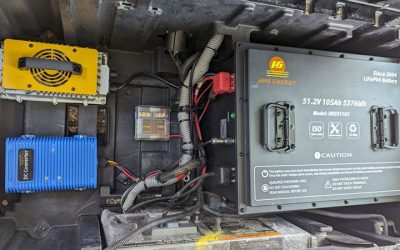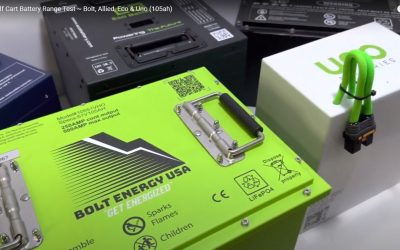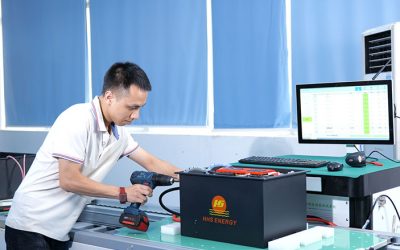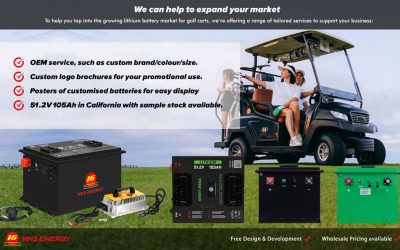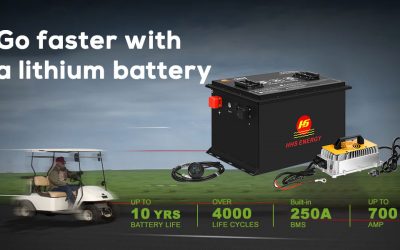Which Golf Cart Battery is Best: 18650 Lithium-Ion, LiFePO4, or Lead-Acid?
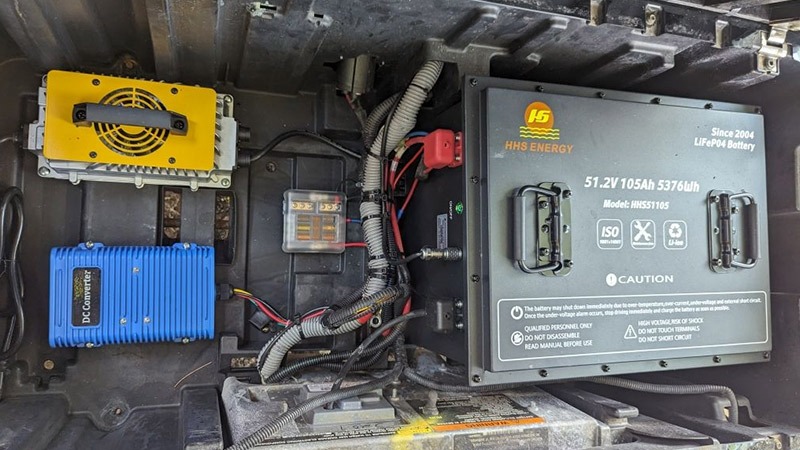
When comparing 18650 lithium-ion, lithium iron phosphate (LiFePO4), and lead-acid batteries for golf carts, it’s essential to evaluate factors such as performance, safety, lifespan, and cost. Here’s a comparison of these three types of batteries for golf cart applications:
1. 18650 Lithium-Ion Batteries
18650 batteries are a type of lithium-ion cell (usually 3.7V) and are widely used due to their high energy density, long life, and lightweight design.
Advantages:
- High Energy Density: 18650 lithium-ion cells have one of the highest energy densities, providing more energy in a smaller, lighter package.
- Fast Charging: These batteries charge faster than both lead-acid and lithium iron phosphate.
- Long Cycle Life: The cycle life of a typical 18650 lithium-ion battery can be around 500-1000 cycles.
- Lightweight: They are lighter than both LiFePO4 and lead-acid batteries, making the golf cart more efficient.
Disadvantages:
- Safety: While lithium-ion cells are efficient, they can be prone to overheating and fire if mishandled, especially if not paired with a proper Battery Management System (BMS).
- Cost: The initial cost of 18650 battery packs can be higher due to the need for multiple cells and additional components (BMS, etc.).
2. Lithium Iron Phosphate (LiFePO4) Batteries
LiFePO4 is a type of lithium-ion battery that offers enhanced safety, longer lifespan, and excellent thermal stability, making it a popular choice for golf carts.
Advantages:
- Safety: LiFePO4 batteries are more thermally stable and safer compared to standard lithium-ion batteries. They are resistant to overheating and less prone to catching fire.
- Longer Lifespan: LiFePO4 batteries typically offer between 2000-5000 charge cycles, significantly longer than both 18650 and lead-acid batteries.
- Lightweight: While heavier than 18650, LiFePO4 batteries are still much lighter than lead-acid batteries.
- Constant Power Output: LiFePO4 batteries maintain a consistent voltage output throughout the discharge cycle, ensuring that the golf cart performs at full power until the battery is almost drained.
Disadvantages:
- Cost: LiFePO4 batteries are more expensive upfront than lead-acid batteries, but their longer lifespan often justifies the investment.
- Energy Density: LiFePO4 batteries generally have a lower energy density than 18650 lithium-ion cells, meaning they are bulkier for the same energy capacity.
3. Lead-Acid Batteries
Lead-acid batteries are the oldest technology and have been used for decades in golf carts due to their low cost and proven reliability.
Advantages:
- Lower Initial Cost: Lead-acid batteries are cheaper upfront than lithium-ion or LiFePO4 batteries, making them a budget-friendly option.
- Availability: Lead-acid batteries are widely available and come in a variety of sizes and configurations, specifically designed for golf carts.
Disadvantages:
- Heavy Weight: Lead-acid batteries are much heavier, which can reduce the efficiency and speed of the golf cart.
- Shorter Lifespan: Lead-acid batteries typically last for 300-500 cycles, much shorter than lithium options. Frequent deep discharges also significantly reduce their lifespan.
- Long Charging Time: Lead-acid batteries can take up to 8-10 hours to charge, much longer than lithium batteries.
- High Maintenance: Flooded lead-acid batteries require regular maintenance (e.g., adding distilled water) and can suffer from sulfation if not properly cared for.
- Inefficient: Lead-acid batteries lose energy through heat and have a lower efficiency (70-85%) compared to lithium batteries (90-98%).
Key Comparisons:
| Factor | 18650 Lithium-Ion | Lithium Iron Phosphate (LiFePO4) | Lead-Acid |
|---|---|---|---|
| Energy Density | High | Medium | Low |
| Weight | Light | Moderate | Heavy |
| Lifespan | 500-1000 cycles | 2000-5000 cycles | 300-500 cycles |
| Charging Time | 2-6 hours | 2-6 hours | 8-10 hours |
| Safety | Requires strict safety measures | Highly stable and safe | Moderate |
| Cost | High | High | Low |
| Maintenance | Low | Low | High |
Which One is Best for Your Golf Cart?
- 18650 Lithium-Ion: Ideal if you prioritize lightweight design and fast charging but are okay with a slightly shorter lifespan compared to LiFePO4.
- Lithium Iron Phosphate (LiFePO4): The best choice for those who want a long-lasting battery with high safety and low maintenance. While it has a higher upfront cost, it delivers excellent performance and reliability over time.
- Lead-Acid: Suitable for budget-conscious users who don’t mind the heavier weight and are willing to perform regular maintenance. However, the shorter lifespan and lower efficiency make it less attractive in the long run.
For most golf cart users today, LiFePO4 golf cart batteries offer the best balance of safety, performance, and longevity, especially if you’re looking for long-term value. However, if cost is a major factor, lead-acid batteries still serve as a viable option, albeit with more frequent maintenance and shorter life expectancy.
